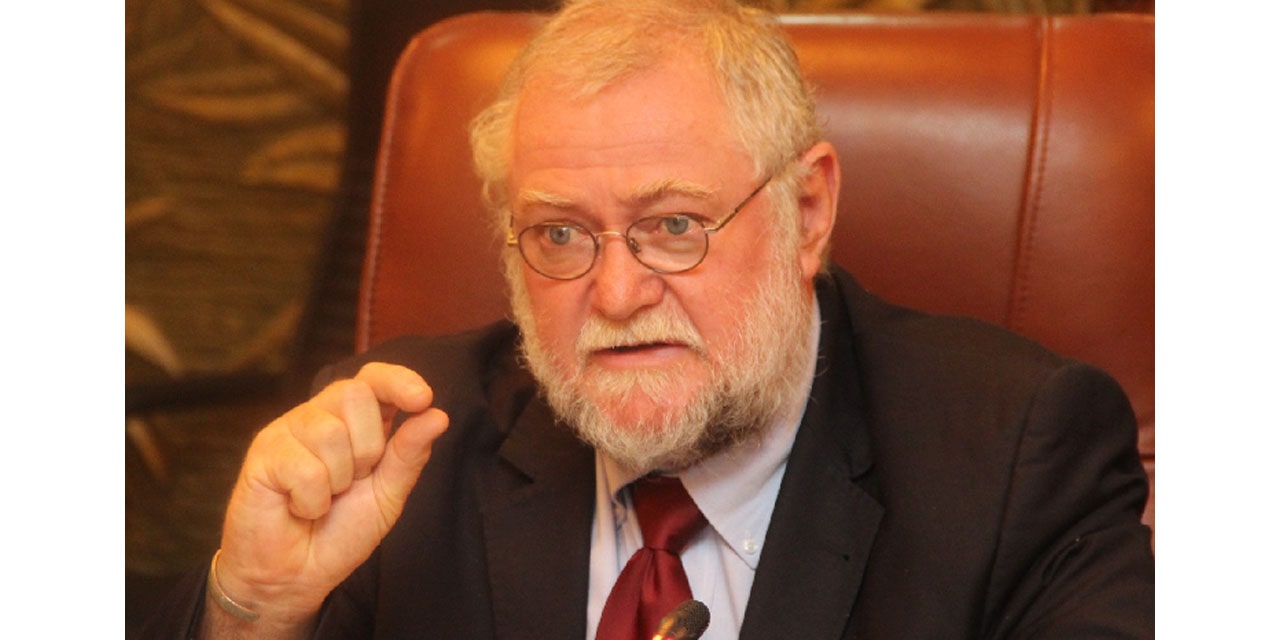Martin Endjala
Staggering statistics by Minister of Agriculture Water and Land Reform, Calle Schleittwein suggest that only five percent of Namibians can afford legal costs.The Minister said that these statistics do not paint a good picture of the government, particularly when it continues to regulate, fine and criminalise people that contravene the laws of the land.
“We continue making more regulations and we criminalise them and when punished these people are left to pay for extremely expensive legal costs,” the minister said.
The Minister shared these sentiments yesterday during the parliament session where he argued that these legal costs have encumbered the survival of the vast majority of Namibians who cannot afford it, to begin with.
A Legal Assistance Center research recommendation of 2012, in terms of the protective cost orders, said that Namibia should introduce and regulate protective cost orders which provide at the outset of a public interest case that the plaintiff will not be required to pay costs even such a person ultimately loses a case.
The effect of protective cost orders would be restricted to cases raising novel or controversial issues, where the public would benefit from having the issues resolved.
The research further proposed cost awards for pro bono representation where a party who is represented, should be able to recover costs in the same way as a paying client.
Schleittwein argued that the legal process is too costly, yet, the government continues to come up with more regulations. He added that this practice requires collective efforts to minimize the gaps to ensure that every Namibian who finds themselves outside the law, are given a fair chance to defend themselves.
“We have many Namibians who are criminalised while they are innocent, but due to the cost involved in acquiring legal representative, they end up being locked up behind bars,” he argued.
The minister also said that he is not happy with the ongoing trend of over-regulating and over-criminalising.
He called on the justice Ministry to consider alternative routes to change these stats to enable all Namibians to have access to affordable legal aid.
In response to this, the Minister of Justice, Yvonne Dausab, also expressed the same sentiments.
She noted that the fact that only five percent of Namibians can afford legal costs is worrisome and that more needs to be done by the ministry to assist the remaining 95 percent.
“The entire Namibian nation can agree with me that this situation is unacceptable,” she said.
She, however, suggested that the N$120 000 to N$200 000 increase in the annual budget allocation to community courts for the 2023/24 financial year, will be used to improve these courts where some deal with bigger cases compared to others. It will also decrease magistrate court cases she said.
“It will also be crucial in tackling some of the concerns of legal unaffordability,” the minister said.
She reiterated that despite this shortfall, the law has made provision for those who are unable to pay legal fees, such as public lawyers, and pro bono cases which the state cover. She also urged Namibians to exhaust all the options available and to also seek advice. Meanwhile, Minister of the Presidency, Christine //Hoebes, wants paternity testing to be mandatory because she believes that this is the only way to solve the ongoing trend of fathers denying financial help to their children. “This has resulted in some children growing up under the care of guardians or single parents while not knowing their true identity because they are left to ponder who their mother or father is,” she said.
She was of the opinion that women are left with no other choice but to ask for maintenance support from the courts. “DNA testing should be made mandatory to avoid fatherless children and the sometimes unjust accusation of fathers who are then responsible raise children who are not theirs.
“All children have the right to personhood, right to identity, right to know who they are and where they are coming from,” Hoebes said.
The Minister of Justice Yvonne Dausab explained that a paternity test is only mandatory when a man or a woman is in denial of pregnancy only then does it make sense.
She highlighted the lack of DNA testing institutions in the country is another issue which needs addressing.




